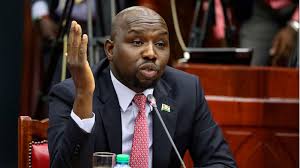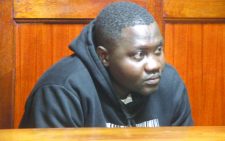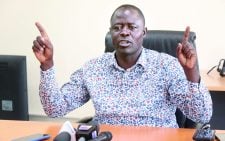Murkomen denies turning a blind eye to police abuses

Cabinet Secretary for Internal Security, Kipchumba Murkomen, has moved to correct what he termed a false impression that he is blind to issues of police misconduct or unable to identify those responsible for abuses within the National Police Service (NPS).
Speaking before the Senate on Wednesday, June 11, 2025, Murkomen clarified his role and limitations under the Constitution, stating that his responsibilities are guided strictly by Article 245(4), which bars him or any political figure from directing police investigations into specific individuals.
“Speaker, that’s far from the truth,” Murkomen asserted, addressing concerns that he was indifferent to police excesses.
“I want to correct that impression—it doesn’t mean that I don’t have an eye to make sure that there is a policy framework where police brutality must be dealt with in the country.”
Murkomen said that while he may not interfere in specific investigations, he remains vigilant about broader policy issues affecting the police service, including abductions and extrajudicial killings.
“That is a responsibility that not just the Cabinet Secretary, but also the National Security Council… carries out as part of its oversight on that matter,” he explained.
The CS emphasised that his powers are not absolute and that the Constitution deliberately insulates the Inspector General (IG) of Police from external interference.

Kipchumba’s defence
“For the purpose of the investigation, specific investigation, touching on this particular gentleman, it will be a violation of our Constitution if, as a Cabinet Secretary… I would now get myself a responsibility contrary to Article 245(4),” Murkomen stated.
He warned that it would be unconstitutional for him—or any other public official—to instruct the Inspector General to arrest, investigate or charge specific individuals.
“If it is suspected that our Senator has committed an offence… and as a CS start saying, ‘I called the IG and tell the IG, go arrest so and so, investigate so and so, charge so and so’—this is the very scenario that Article 245 of the Constitution sought to prevent,” he said.
Murkomen further stressed that the only entity constitutionally empowered to direct investigations is the Office of the Director of Public Prosecutions (DPP), not Cabinet Secretaries, Senators, or even the President.
“That is why the only exception given, is the office of the DPP, who can give directions to the IG to carry out investigations,” he stated.
Addressing the broader misunderstanding, Murkomen said: “I saw everybody was riding on that particular section of Article 245,” adding that while he cannot intervene in individual investigations, he can give general policy direction to the police.
“Policy-wise, I can give directions to investigations generally—to acts or resurgence of certain acts or commissions or offences. I can be able to give that direction, but I cannot wake up here and say ‘Senator A, be investigated.”
Murkomen also rejected any suggestion that he has influence over police staffing decisions.
“It is also not right for me, under the same article, to give direction on the employment, assignment, promotion, suspension or dismissal of any person who works in the National Police Service,” he said.
The CS was clarifying his earlier utterances that he has no “eye to see who is culpable” and explicitly shifted blame from his ministry to investigative departments over Albert Ojwang’s death.
Murkomen said the law is clear on who should shoulder such blame. He noted that those eyes have been given to investigative authorities under Article 245 of the Constitution.












